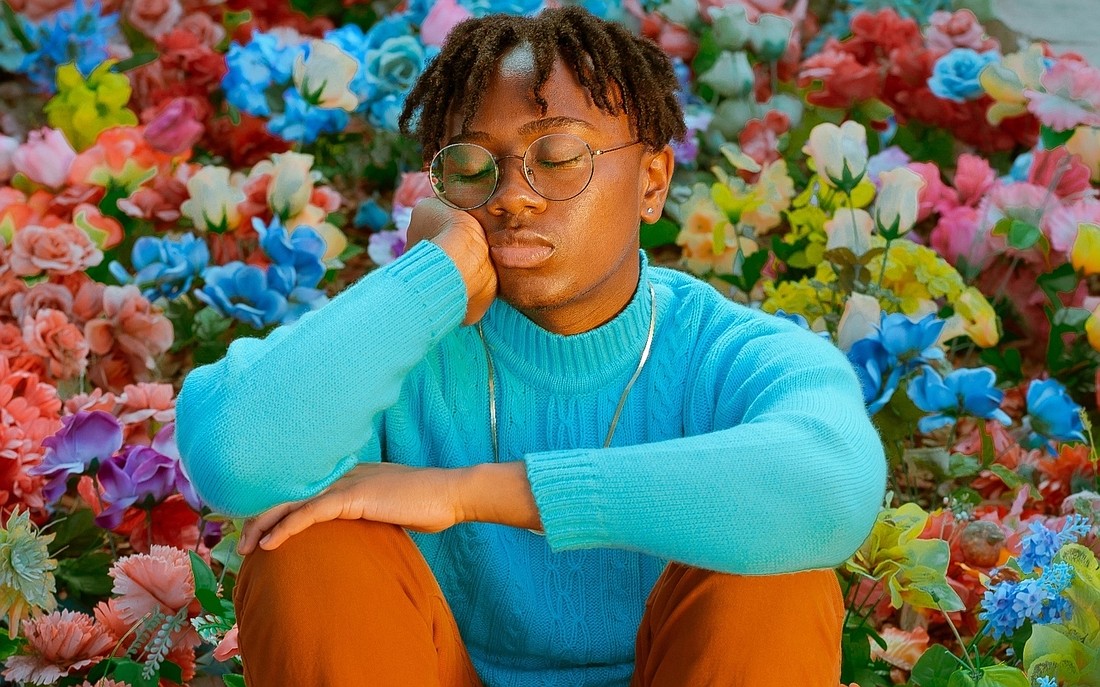- May 10, 2025
-
-
Loading

Loading

Sarasota has been both Jesse Clark’s muse and his springboard into the world of photography.
Clark, who grew up in Lakeland, can recall his earliest days with a camera, and he fondly remembers trips to Sarasota with his father and photographing landscapes.
Now, as a senior at the Ringling College of Art and Design, Clark has bigger ambitions, and he’s hoping his art will help to change the way society perceives people of color.
“I fell in love with photographing the sunset. That became my introduction to photography,” says Clark. “It wasn't really until I got to Ringling that I learned photography could be a tool not just to capture the world around me, but change the world around me as well.”
Clark’s latest work, entitled "Everglow," is a series of staged photographic works that will be exhibited at Art Center Sarasota for the entire month of September. The exhibit — and much of Clark’s work in his young career — explodes out of his burgeoning social consciousness. Thematically, you’ll see lots of pastels and floral images juxtaposed with Black male models, and Clark says that’s no less than an attempt to rewire the way we see society portrayed in media.
“In television and movies, the Black man is usually an aggressive character, a criminal or maybe a jock,” he says. “How do we show them in different ways, something that's more truthful and essentially more human?
"Flowers always have this idea of peace and softness. That’s what I want to show. I see myself as a soft, young Black man. I have the strength to do everything else, but I’m not an aggressive trope that television likes to show.”
Clark says he grew up in a family of musicians and was encouraged to think creatively from an early age. He first started expressing himself through painting, which gave him the tools to think about color and composition as a photographer.
He studied visual art at the Harrison School for the Arts in Lakeland prior to enrolling at Ringling, and that’s when he really started getting deeper into photography. Clark credits his professors for helping him think about creating themes with his art, and he says the Suncoast Black Arts Collaborative gave him an early springboard in displaying his work.
“I couldn't have done this alone,” he says. “There's a lot of people before me that paved the way just so I could create the work that I want to create. I’m trying to also pave the way for others that come after me. This is stuff that I would’ve liked to see more of when I was younger. I want to produce that for the next generation as sort of a role model to look up to.”
Clark’s oeuvre isn’t just any old point-and-shoot. He says his photographs always start from an image in his head, and he studiously writes down whenever he has an idea he’d like to pursue.
Then, from there, he has to figure out how to put his idea into motion.
That means thinking not just about the model but about the lighting, the location and the costuming to boot.
“With 'Everglow,' I had the idea of what I wanted already laid out in my mind,” he says.
“If I'm trying to create these narratives, I have to find just the right people for these images. The right locations, the costuming, and that kind of curates together in itself.”
Clark’s work was first exhibited at Art Center Sarasota in February as part of a show with the Suncoast Black Arts Collaborative entitled "Visions in Black," and that’s where the seeds of "Everglow" were sown. Kinsey Robb, the executive director of Art Center Sarasota, was taken with his work, and she says that his vision is mature for an artist of his age and experience.
“I think what separates a great artist from lots of other artists is a sense of purpose,” she says. “Consistency, and also being able to kind of strike a chord with the viewer. To be able to look at his work and see a thesis without it being explained is pretty remarkable. It's an identity he knows within himself and his artistic practice, which sometimes takes decades to find."
Clark says he’d like to pursue a career as a fine art photographer, and he’s excited about using his skills in some form or fashion after graduation. But his message is one that he hopes will resonate. Clark says he’s thankful not just for the chance to show his work but for a chance to interact with the public and tell them about it.
He'll be part of an artist's talk Sept. 15 at the Art Center, and he hopes to underline some of his themes in person.
“I think I'm excited to be able to have the artist's talk and give a little more insight and background to those pieces,” he says.
“It really creates that dialogue so people that are outside the Black community can have a little more of an understanding of what those themes and symbols are in the work.”